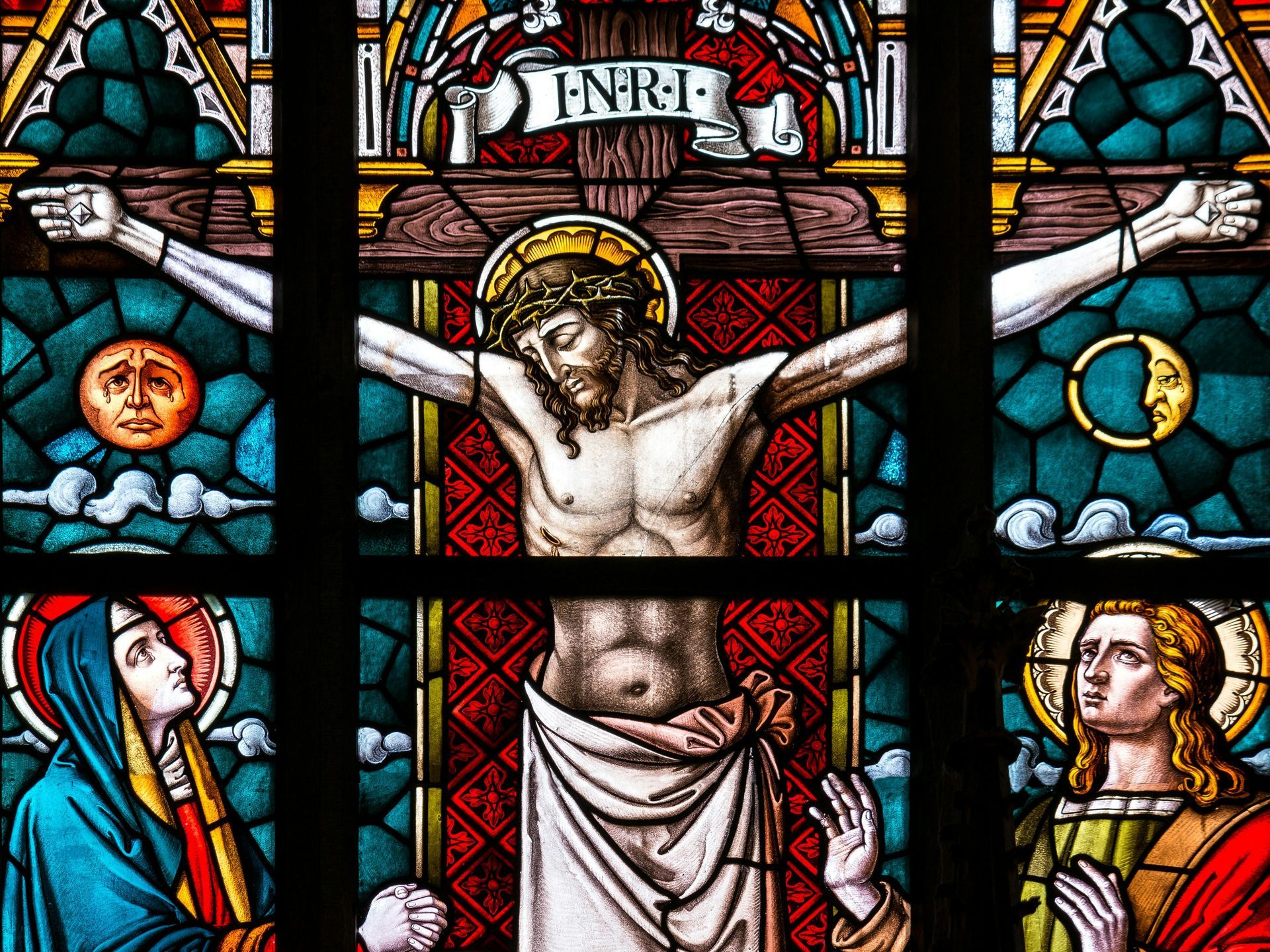Bylsma’s Bible Blogs
#10 Biblical Options for Opposing the Government

This modified excerpt comes from Chapter 17, Government, Politics, And Citizenship, The Bible I Never Knew: A Closer Look at Christianity’s Main Themes. (Dr. Peter Bylsma, Byblio Press, 2024). The chapter summarizes the Bible’s stories and teachings related to government, politics, and citizenship and the related themes of laws, taxes, submitting to authority, nationalism, patriotism, and freedom.
Paul wrote letters that provided insights into a Christian’s relationship with human authority. He said our true citizenship is in heaven and we are God’s representatives (ambassadors) to those who live on earth (Phil 3:20, 2Cor 5:20, Eph 6:19–20); Peter said we are “a chosen people, a royal priesthood, a holy nation, foreigners” (1Pet 2:9–11). Our ultimate loyalty is to God, not an earthly authority; we represent God and should not obey rules that conflict with God’s rules.
My experience living for many years outside the United States has given me insights into these verses. I served five years as a diplomat for the United States government while I lived in Europe and traveled to many countries in Africa, Asia, and the Middle East. I had to obey the rules of the countries where I went, but I didn’t give up my U.S. citizenship. During my time abroad, if I was ordered to do something that violated the oath I took to the U.S. Constitution, such as pledging my allegiance to another country or revealing a secret I was sworn to keep private, I would not follow that order. I met with ambassadors who had the same perspective — they represented their country as they lived in another country. While they lived in another country, they had different loyalties and represented the perspectives of their own country.
In the same way, those who follow Jesus are ambassadors who represent the kingdom of heaven to others on earth. We are to live in this world but not violate God’s mandates. So as citizens of heaven, we are not to obey governments that require us to violate God’s commands and laws. Being God’s representatives on earth can be a dangerous and uncomfortable job, and standing against those in power can even be fatal. The prophets, apostles, and early Christians were jailed, persecuted, and martyred (Heb 11:35).
Those who stayed true to God’s teachings used three non-violent methods to oppose ungodly rules and practices.
God’s people speak truth to power. When the Israelites and their leaders disobeyed God’s commands, prophets said they needed to repent and change their ways. Some of them were killed, and some were harassed and persecuted. John the Baptist told King Herod that he should not have married his brother’s wife, and the king honored his wife’s request for John’s head.
God’s people engage in civil disobedience. This form of resistance involves intentionally disobeying a government rule or requirement that violates God’s laws. The Hebrew midwives disobeyed Pharaoh’s command to kill newborn boys. When Shadrach, Meshach, and Abednego defied the Babylonian king’s order to worship a statue of himself, they told the king, “If you throw us in the fire, our God can deliver us from it. But even if our God doesn’t save us, we want you to know that we won’t worship another god or bow to the golden image you set up” (Dan 3:17–18). The three men were then forced into the burning furnace. Daniel defied the Persian requirement to worship the king and was thrown to the lions. Obadiah, a faithful leader in the government of the evil king Ahab and queen Jezebel, disobeyed a command to kill all the prophets, and he saved 100 men by hiding them in a cave. Many of the disciples defied orders to stop preaching, and some were thrown into prison for it. Peter said, “We must obey God rather than men” (Acts 5:29).
God’s people flee evil. There are many examples of how faithful people left a situation in an act of self-preservation to escape the dangers of evil forces. Lot and his family fled Sodom, the Israelites fled from Egypt, David fled from Saul, and Elijah ran away twice to avoid the armies Jezebel sent to kill him. In the New Testament, Christians fled for their lives because Jewish leaders were arresting and killing them. Paul and his traveling companions were constantly being threatened, which forced them to move to other cities.
None of these three methods of opposition involved physical rebellion or violence. (The only possible exception was when Samson killed himself and several thousand Philistines in an act of suicide that brought down the roof and walls of their house of worship. But as a blind prisoner, he had no other options.) When armed men came to arrest Jesus, Peter moved quickly to defend him and cut off the ear of a man who approached Jesus with his sword. But Jesus told Peter, “Put away your sword; those who use the sword will die by the sword” (Matt 26:52). There is no Biblical basis for individuals to use violence against others or to overthrow a government. God tells us not to seek revenge or use evil means when evil is done to us. God says, “Vengeance is mine, I will repay; overcome evil with good” (Deut 32:35, Prov 20:22, Rom 12:17–21, Heb 10:30).
Those who act as agents of the government have different responsibilities. As noted in chapter 5, commands for individuals are different for governments, which God uses to administer justice and protect people. So judges need to follow the law, even if the law could be considered immoral. Soldiers must follow orders to kill their enemies because they are part of a government that is responsible for protecting others, including taking lives when lives are taken (Gen 9:6). Resisting evil is an act of love, and governments have this responsibility. Some acts of violence in the Old Testament were justified because they were carried out against evil people by those representing God.[1]
However, there are exceptions when the human authorities issue orders that are not legal or moral. We are not to lie or take bribes to protect those with evil motives. When soldiers are given orders to kill others without a good reason, soldiers must not obey the orders — blind compliance to such a command is unlawful and considered murder; “following orders” is not an acceptable excuse for murdering others. Some people “flee” and avoid required military service on the grounds they feel the actions of the military are unjustified and morally wrong.
Finally, there is no scripture or precedent to support the idea that God’s people should try to change a secular government into a theocracy or have it follow God — that’s not why governments exist. In fact, a government should protect a person’s right to believe what they want, for God always gives us a choice. The Israelites who were captured by the Assyrians and Babylonians didn’t try to convert their captors to Judaism or change the government. The armed rebellion against immoral Greek orders by the Maccabees in the 2nd century BC was never mentioned in the New Testament. Jesus, his disciples, and the apostles made no attempt to rebel or question Roman authority, even though it exerted harsh control throughout its empire; this would be inconsistent with obeying God’s delegated authority. They focused instead on informing people about our spiritual condition and beliefs. The angry Crusaders used force to restore Christian values and traditions in Palestine, which damaged the reputation of the Christian faith.
The Bible contains many passages and teachings related to governments and politics, including the topics of justice and living peacefully in society. Although Christianity was an illegal religion and many believers were killed throughout the Roman empire, Christians tried to be good citizens and didn’t use violence to defend themselves. The faith grew quickly, and according to Tertullian’s Apology written in about AD 200, Christians “filled the cities, islands, fortresses, towns, marketplaces, the army itself, tribes, companies, the Imperial Palace, the Senate, the Forum” (in other words, Christians were found everywhere). The spread of Christianity was also influenced in part by the promises of life after death to believers and by the predicted downfall of the Roman Empire. Justin Martyr tried to convince the Roman authorities that Christians were good citizens, even though they would not worship the Roman gods, but he was beheaded with some of his disciples in AD 165. Other Christian leaders were persecuted and killed in spectacular and gruesome fashion... Christians are still persecuted and ostracized in some parts of the world.
[1] Usually the violence was conducted by Jews toward other Jews who had abandoned God within their theocracy. This “violence” was really a form of justice being administered by those in charge of the government. For example, Moses had rebels killed several times and Elijah had 850 prophets of Baal killed.
Bylsma’s Bible Blogs











